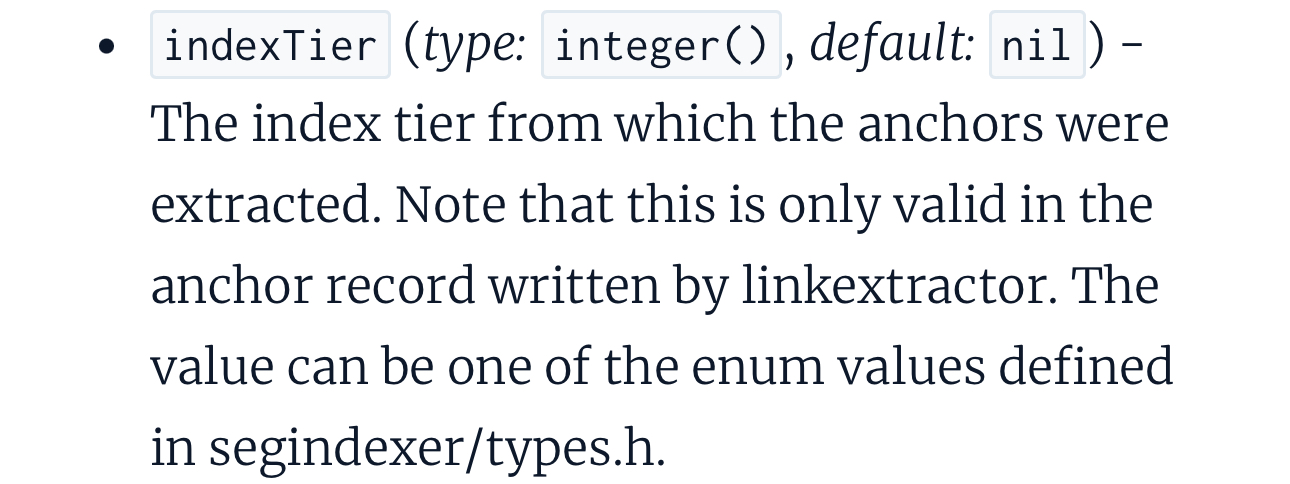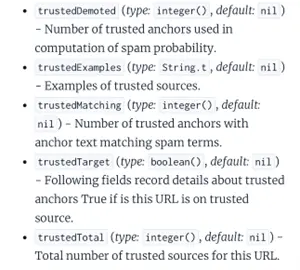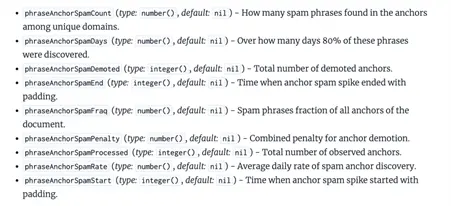Guess what? Links matter! .. and Google just confirmed it (sort of)

“9 Key Takeaways From Google Document Leaks”
On March 13, thousands of documents that seem to be from Google’s internal Content API Warehouse appeared on Github. They were released by a bot named yoshi-code-bot. This leak has caused a big stir in the SEO community because it uncovered more than 14,000 potential factors that Google might use to rank websites. It’s a rare peek into how Google decides what shows up in search results.
The documents were first shared with Rand Fishkin, who co-founded SparkToro. He then got Michael King from iPullRank involved to help spread the news. It’s important to note that this wasn’t a hack or a deliberate leak by someone inside Google—it seems to have come from a routine update labeled “yoshi-code-bot /elixer-google-api.
So, now the question is, “Do Links still matter?”
Links are still important, and their relevance is extremely important. Here are additional insights that might alter your approach to creating the backlinks and ranking factors.
In the digital age, a strong online presence is more important than ever for businesses in all industries, and online casinos are no exception. As more and more Canadians turn to online platforms for entertainment, it is becoming imperative for these casinos to establish themselves as reliable and attractive destinations. Casinosters.ca stands out in this competitive market by carefully selecting and reviewing the best online casinos in Canada. Their comprehensive guide not only highlights the best platforms, but also provides detailed information about each casino’s offerings, ensuring that users can make informed decisions. The success of https://casinosters.ca/ illustrates how a well-implemented online strategy can significantly increase brand awareness and trust. Using the best SEO practices, interesting content, and user-friendly design, Casinosters.ca attracts a significant audience of gambling enthusiasts. This strategic online presence not only drives traffic but also builds trust among users who rely on the site for accurate and up-to-date information.
There Are 14k Ranking Features and More in the Google Leak Docs
There are 2,596 modules represented in the API documentation with 14,014 attributes (features) that look like this:
The modules relate to components of YouTube, Assistant, Books, video search, links, web documents, crawl infrastructure, an internal calendar system, and the People API. Just like Yandex, Google’s systems operate on a monolithic repository (or “monorepo”), and the machines operate in a shared environment. This means that all the code is stored in one place, and any machine on the network can be a part of any of Google’s systems.
Key Points from The Google Leak Document
Google evaluates links based on their relevance, locality, and freshness, prioritizing those that seamlessly integrate with the content they connect to while disregarding mismatches, as indicated by features like AnchorMismatchDemotion. Links from the same country as their target are deemed more valuable, supported by attributes such as LocalCountryCodes, to enhance contextual relevance in search results.
Freshness remains a critical factor, with Google valuing links from newly published content identified through attributes like SourceType, indicating current and high-quality information. This emphasis encourages website owners to maintain updated content for improved visibility.
Trustworthiness is foundational in link assessment. Google assesses a site’s credibility, particularly its homepage, when determining the impact of its links. Links from reputable news sources and influential sites are highly regarded for their authority and credibility, positively influencing search rankings.
To maintain fairness and accuracy, Google employs sophisticated metrics such as link velocity (how quickly links appear or disappear) and AnchorSpam (links intended to manipulate rankings) to detect and handle misleading links. This approach ensures that links within relevant and trustworthy content contribute positively to site rankings, while deceptive practices are identified and mitigated.
In addition to link evaluation, Google has evolved its approach with deprecated algorithms like PageRank_NS, associated with document understanding and nearest seed modification. It utilizes multiple PageRank types, including ToolBarPageRank, tailored to different contexts. Google also identifies and assesses various business models, including news, YMYL, ecommerce, and video sites, though the specific filtering criteria for personal blogs remains unclear.
Key components such as navBoost, NSR, and chardScores are crucial in Google’s algorithm, enhancing link relevance and impact. Google integrates site-wide authority metrics, including Chrome browser traffic, and utilizes page embeddings, site embeddings, site focus, and site radius in its scoring function to comprehensively evaluate site credibility.
Moreover, Google measures user interaction metrics like bad clicks, good clicks, click rates, and site-wide impressions to understand user behavior and content engagement, further informing its ranking decisions.
9 Key Takeaways for Link Builders
Relevancy of Links:
Google’s leaked documents strongly emphasize link relevancy for effective SEO. The AnchorMismatchDemotion feature indicates that Google may devalue links that don’t match the context of the linking and linked pages. This underscores the importance of securing links from thematically relevant sources to your content.
Digital PR strategies should prioritize outreach to websites that publish content closely related to the topics of interest. By ensuring links are embedded in contextually relevant articles or pages, brands enhance their credibility and align with Google’s preference for content that provides value within its topical context.
Sitewide Authority:
Despite Google’s public stance against traditional metrics like Domain Authority, leaked documents suggest the existence of a SiteAuthority score. This metric likely evaluates site-level trust and quality signals beyond simple link-based metrics. This underscores the importance of earning links from high-authority sites that adhere to Google’s quality guidelines for digital PR professionals.
Focusing on building relationships with authoritative domains and publishing content that earns links from reputable sources can significantly enhance a site’s perceived authority. By understanding and leveraging SiteAuthority as a ranking factor, digital PR efforts can strategically prioritize high-quality link acquisition strategies that positively impact SEO performance and site credibility.
Freshness of Links:
Google’s preference for fresh content, referred to as “freshdocs,” is highlighted in leaked documents regarding link value. This indicates that newer content carries higher importance for link acquisition purposes. Digital PR strategies should focus on securing links from recently published articles or pages to align with Google’s preference for timely and relevant content.
By prioritizing strategies promoting ongoing content creation and distribution, brands can ensure their links are earned from sources regularly updating their content. This approach supports immediate ranking benefits and establishes a foundation for sustained organic growth through consistently updated and relevant content.
<!–
Do you want more traffic?
–>
Get High-Quality Links Now!!
Trustworthiness of Sources:
Google’s recognition and tagging of links from trusted sources emphasize the importance of link quality and credibility. Metrics like HomePageInfo assess the trustworthiness of linking pages, indicating a preference for links from well-regarded domains.
Digital PR strategies should prioritize securing links from reputable websites and authoritative publications recognized by Google as trustworthy sources. By building relationships with credible domains and ensuring links are embedded within high-quality content, brands can enhance their SEO efforts and establish authority within their industry. This approach improves search engine visibility and reinforces brand credibility online, aligning with Google’s quality standards for link evaluation and ranking.
Links from High-Quality News Sites:
Google’s EncodedNewsAnchorData attribute suggests that links from reputable news sites carry substantial SEO value. Digital PR strategies should prioritize securing links from these authoritative publications to enhance online visibility and credibility. By leveraging relationships with high-quality news outlets, brands can improve their search engine rankings and establish authority in their industry.
Seed Sites and Link Value:
PagerankNS emphasizes the importance of links from well-connected seed sites. Digital PR efforts should focus on building relationships with these influential hubs to enhance link quality and SEO impact. By earning links from trusted seed sites, brands can improve their site’s authority and visibility in search engine results.
If you’re unfamiliar with seed sites, the great news is that they are not overly complicated to grasp. You can check out a previously written article (2018) about page rank here.
The patent provides two examples of seed sites: the Google Directory (it was still around when the patent was first filed) and the New York Times. We are also told: ‘Seed sets need to be reliable, diverse enough to cover a wide range of fields of public interests, and well connected to other sites. In addition, they should have many useful outgoing links to facilitate identifying other useful and high-quality pages, acting as ‘hubs’ on the web.’
Under the PageRank patent, pages are given ranking scores based on how far away they might be from those seed sets and other features of those pages.
Topical Authority is also important:
Topical authority is a concept based on Google’s patent research. If you’ve read the patents, you’ll see that many of the insights SEOs have gleaned from patents are supported by this leak.
In the algo leak, we see that siteFocusScore, siteRadius, siteEmbeddings , and pageEmbeddings are used for ranking.
What are they?
- siteFocusScore denotes how much a site is focused on a specific topic.
- siteRadius measures how far page embeddings deviate from the site embedding. In plain speech, Google creates a topical identity for your website; every page is measured against that identity.
- siteEmbeddings are compressed site/page embeddings.
Handling of Spammy Links:
Google’s mechanisms like IndexingDocjoinerAnchorSpamInfo are used to combat link spam. Digital PR strategies should prioritize maintaining a clean backlink profile by disavowing toxic links and focusing on acquiring links from trustworthy sources. By adhering to Google’s guidelines for link quality, brands can mitigate the risk of penalties and safeguard their SEO performance.
Negative SEO Detection:
Google monitors metrics like link velocity to detect and mitigate negative SEO tactics. Attributes like PhraseAnchorSpam highlight Google’s proactive approach to protecting websites from malicious link activities. Digital PR professionals should monitor link acquisition strategies to ensure they comply with Google’s guidelines and avoid practices that could harm their site’s rankings.
Link-Based Penalties and Adjustments:
Google’s ability to selectively penalize or ignore specific links through features like Demoted Anchors underscores the importance of quality over quantity in link building. Digital PR efforts should prioritize securing links from relevant and authoritative sources to avoid penalties and optimize SEO performance.
Toxic Links:
Despite Google’s public stance, leaked documents suggest criteria like BadBackLinks exist to identify and penalize pages with harmful backlinks. Digital PR strategies should include regular monitoring and disavowal of toxic links to maintain a healthy backlink profile and protect SEO rankings.
Contextual Relevance:
Google considers surrounding content (Context2, FullLeftContext, FullRightContext) to gauge the context and relevance of a link. Digital PR should focus on embedding links within content that aligns contextually with the target page, enhancing the link’s value and SEO impact. By prioritizing contextually relevant link placements, brands can improve their search engine rankings and user engagement metrics.
User Engagement Metrics:
Navboost underscores the importance of user interaction data, such as clicks and engagement duration, in Google’s ranking algorithm. Design your content and website to maximize positive user interactions. Craft compelling meta titles and descriptions that entice clicks, and ensure your content fulfills user expectations to reduce bounce rates effectively.
Influence of Chrome User Data on Rankings:
One of the significant revelations from the leaked Google document is the integration of Chrome browser data into the search ranking algorithm. Despite previous denials, this leak confirms that user behavior within Chrome directly influences search rankings.
Links Still Matter, But How They Matter Is Different
The leaked Google search documentation highlights the importance of link diversity and relevance, as well as the continuing impact of PageRank on website homepages. However, there’s a noticeable shift from simply accumulating many links to prioritizing quality and real user interactions, such as clicks. Find out why Bambet casino is one of Australia’s leading online casinos. Read the Bambet casino review to see how a team of developers and SEO specialists have developed a truly high-quality casino. This suggests that links from authoritative sites that fail to attract clicks might be considered irrelevant.
How Should the SEO Community Move Forward
The revelations from the Google algorithm leak offer valuable insights into how search rankings are determined. They emphasize factors like link relevance, user engagement metrics, and the influence of Chrome browser data. While these details are enlightening for SEO professionals, the core principles of effective SEO remain rooted in user-centric strategies.
Adapting to these insights involves prioritizing content quality, relevance, and user experience. Strategies should focus on creating valuable content that aligns with Google’s evolving criteria, fostering engagement that reduces bounce rates and encourages longer session durations. Building authoritative links from reputable sources and ensuring local and topical relevance are also pivotal.
Ultimately, SEO success hinges on understandding and adapting to these algorithmic nuances while consistently delivering what users seek. By maintaining a user-focused approach amidst algorithmic updates, businesses can improve search engine visibility and enhance overall user satisfaction and engagement. This balanced approach ensures long-term SEO effectiveness in an ever-evolving digital landscape.
Read more about Google Algorithm Updates

















